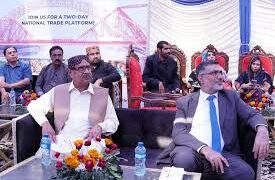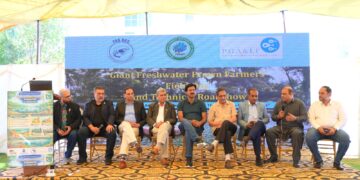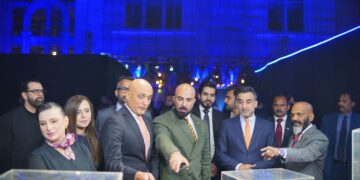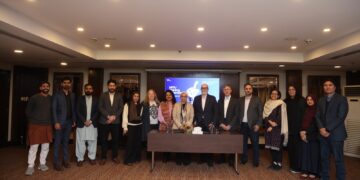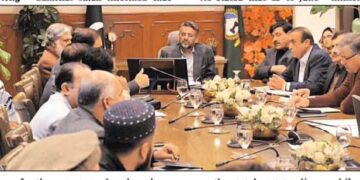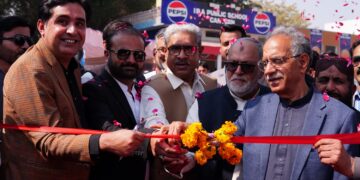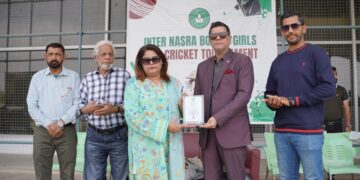Pakistan : Women Agricultural Workers’ Rights in Focus at 17th Annual Rural Women Leadership Training Conference
Awaz CDS-Pakistan and Pakistan Development Alliance (PDA), in collaboration with PODA, host a critical session on Women Agricultural Workers’ Rights organized as part of the event 17th Annual PODA Rural Women Leadership Training Conference, dedicated to the empowerment and advocacy of women agricultural workers. A designated session titled “The Case of Women Agricultural Workers’ Rights in Pakistan” took place on 23rd October 2024. The session featured key voices from Sindh and Punjab, highlighting the ongoing struggles and challenges of women working in the agricultural sector.
The session, commenced with the welcome note by Mr. Zia ur Rehman, CEO of AwazCDS-Pakistan. He highlighted the organization’s commitment to promoting the rights of Women Agricultural Workers (WAWs) and emphasized the urgent need to recognize agricultural land as an official workplace. Mr. Zia stressed that “the land on which these women work must first be granted the status of a recognized workplace, and only then we can push for the enforcement of laws ensuring their rights.” He also urged for proper implementation of existing labor laws that address fair wages, workplace safety, and representation for WAWs.
The session featured a diverse representation, such as Ms. Kausar Mai, a Women Agricultural Worker from Rahim Yar Khan, Punjab and a WAW community representative Ms. Khazadi, from Sukkur, Sindh. Ms. Kausar Mai shared the personal struggles faced by Women Agricultural Worker, underscoring the lack of health facilities, prevalence of harassment, and unfair wages they receive. She highlighted that “we produce the food that feeds the nation, yet our own children are deprived of proper nutrition and education.” This disparity, she argued, is emblematic of the systemic negligence that WAWs endure. Additionally she expressed her deep gratitude to AwazCDS-Pakistan for this initiative which has given women agricultural workers voice to share their concerns and demand their due rights. “These opportunities, she said,”Has encouraged us to negotiate with landlords for fair wages and we’ve been able to negotiate an increase from PKR 250 to PKR 500—a change we never thought possible.” She also urged the government to issue “Hari Cards” for agricultural workers that would enable them to access essential services, including healthcare and social protection that are otherwise unavailable to them.
Ms. Khazadi, a Women Agricultural Worker from Sindh, also shared her personal experiences, emphasizing the physical toll of agricultural labor and the lack of basic safety measures in the fields. She stated, “We are expected to work long hours in the sun, often without proper equipment or safety, and we receive little to no healthcare when we fall sick due to these conditions.” She further explained how women like her, who work tirelessly to feed their families, are denied even the most basic rights, like healthcare, education for their children, and fair wages. Sharing these concerns, she added that many women agriculture workers in Sukkur face severe challenges due to the absence of legal representation and are often exploited by landlords. She asked for immediate steps to ensure that women working in agriculture are given representation so they can effectively advocate for their rights.
The session also featured Ms. Farhat, representing the NOW Foundation from Karachi, Sindh, who discussed the multi-faceted challenges that women face across various sectors, including agriculture, industry, and home-based textiles. She highlighted the non-implementation of existing labor laws and stated that the Sindh Women Agricultural Workers Act 2019 remains incomplete because the definition of ‘employer’ is missing. “Without a clear definition of who the employer is,” she said, “it’s impossible to hold anyone accountable, and this creates a loophole that leaves women without protection.”
Ms. Kanwal Liaqat, a Member of the Provincial Assembly (MPA) from Punjab, appreciated the efforts of AwazCDS-Pakistan and PODA in organizing such a platform. She applauded the courage of the Women Agricultural Workers who came forward to share their stories on this national stage. “Your voices are vital,” she said, committing to taking the agenda of WAWs’ rights to the floor of the Punjab Assembly and discuss it with the Chief Minister of Punjab_ Ms Maryam Nawaz Sharif, aiming to gather support for implementing a robust legislative framework. She stressed the importance of legislative reform and promised to ensure that women agricultural workers gain access to their rightful protections under the law.
The conference ended with Ms. Sameena Nazir, thanking all participants and emphasizing the need for continued collaboration and advocacy to ensure that WAWs’ rights remain a priority at both provincial and national levels.
Advertisements






